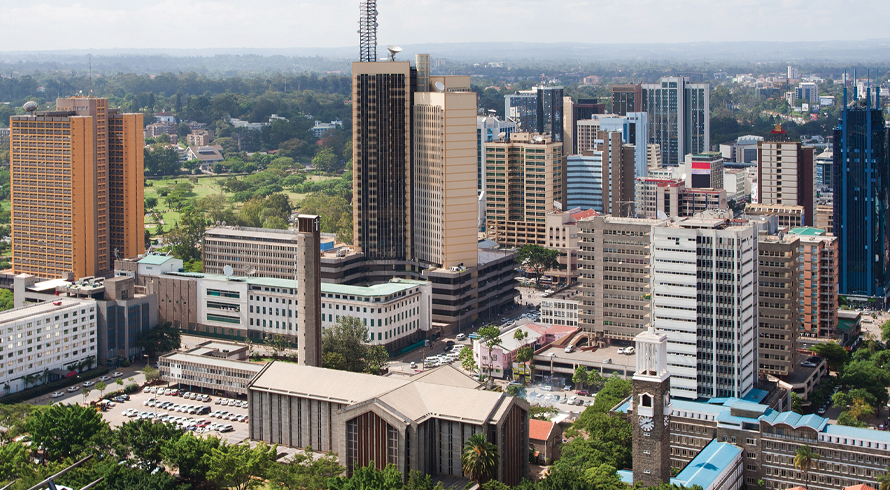Triggering the court’s remedial powers in terms of section 163 of the Companies Act
At a glance
- Section 163 of the Companies Act 71 of 2008 permits a shareholder or director of a company to apply to court for relief if any act or omission by the company, or a person related to the company, has had a result that is oppressive or unfairly prejudicial to, or that unfairly disregards the interests of the applicant.
- In the recent decision of Parry v Dunn-Blatch and Others (394/2022) [2024] ZASCA 19 (28 February 2024), the Supreme Court of Appeal (SCA) was called upon to adjudicate whether the contemplated act or omission envisaged in section 163(1) of had taken place.
- Although ruling against the applicant, the SCA emphatically settled the position as to who has standing to bring an application in terms of section 163.
Essentially, section 163 of the Act permits a shareholder or director of a company to apply to court for relief if any act or omission by the company, or a person related to the company, has had a result that is oppressive or unfairly prejudicial to, or that unfairly disregards, the interests of the applicant. To trigger the court’s remedial power in terms of section 163(2) of the Act, the court must be satisfied that (i) the relevant conduct or omission exists on the facts before it and (ii) the relevant conduct or omission was either oppressive or unfairly prejudicial or unfairly disregarded the interests of the applicant.
In the recent decision of Parry v Dunn-Blatch and Others (394/2022) [2024] ZASCA 19 (28 February 2024), the Supreme Court of Appeal (SCA) was called upon to adjudicate whether the contemplated act or omission envisaged in section 163(1) of the Act had taken place as alleged by the applicant in this matter.
Background
The dispute had its genesis in the acrimonious relationship between two directors and erstwhile friends, Ms Parry (the applicant) and Ms Dunn-Blatch, who had formed two companies TRADSA (Pty) Ltd (TRADSA) and a non-profit company known as the International Trade Institute of Southern Africa (ITRISA). ITRISA was established for the purposes of offering distance learning programmes, training courses, workshops, and project-based consultancy in the field of international trade. Parry and Dunn-Blatch occupied directorships at both ITRISA and TRADSA and held equal shareholding in TRADSA.
Parry resigned as a director of ITRISA but remained a director and shareholder of TRADSA and, despite a deterioration in their relationship, Parry and Dunn-Blatch deposed to an affidavit in terms of section 26(12)(a) of the Copyright Act 98 of 1978 (the licence agreement) with a view to formalising the relationship between ITRISA and TRADSA in respect of the use of certain intellectual property.
Before the High Court
A dispute arose between the parties due to Parry’s insistence on TRADSA’s entitlement to receive compensation from ITRISA for the utilisation of TRADSA’s intellectual property. Parry relied on section 163 of the Act for relief. The Gauteng Division of the High Court, Johannesburg ruled in Parry’s favour holding that Dunn-Blatch and ITRISA’s conduct was “manifestly oppressive and unfairly prejudicial and unfair regards the interest of Ms Parry as a director and shareholder” of TRADSA.
Aggrieved by the High Court’s findings, Dunn-Blatch and ITRISA were granted leave to appeal to the full court of the High Court, which held that the High Court had effectively concluded a new licence agreement for the parties by including new terms. In summarising its findings, the full court found that Parry had failed to establish the oppressive or unfairly prejudicial conduct claimed of and contemplated in section 163(1) of the Act.
Before the SCA
The matter then came before the SCA by way of special leave to appeal in terms of section 17(2)(d) of the Superior Courts Act 10 of 2013. While dismissing many of the arguments proffered by Dunn-Blatch and ITRISA – including a lack of standing contention made by them in respect of Parry’s claim in this case, which the SCA stated was at odds with the purpose for which section 163 of the Act was promulgated – the SCA found that the licence agreement was silent on the issue of the payment of any compensation for the copyright material owned by TRADSA.
Foreshadowed above, and of reference for purposes of our present discussion, the SCA dealt with who has standing to bring an application in terms of section 163 of the Act. The SCA confirmed that Dunn-Blatch and ITRISA had a misconstrued understanding that only TRADSA had standing to bring the application in this case and not Parry. The SCA emphasised that section 163(2) gave it a wide discretion to craft an order appropriately redressing any impugned act or omission suffered by the applicant. Parry, the SCA found, brought the application in her dual capacity as a shareholder and director of TRADSA. On a plain reading of section 163(1), Parry fell within the category of persons permitted to bring an application to complain about the impugned conduct in question. The contention and reliance placed on the Foss v Harbottle rule, which states that any loss suffered by a company must be recovered by the company itself and not any of its shareholders, falls flat on its face considering the wide ambit of persons afforded protection by section 163.
Referring to 2013 decision in Grancy Property Ltd v Manala [2013] ZASCA 57; [2013] 3 All SA 111 (SCA); 2015 (3) SA 313 (SCA), the SCA confirmed that:
“[S]ection 163 must be construed in a manner that will advance the remedy it provides rather than limit it. Such an approach is consonant with the objectives of section 7 of the Companies Act, which include balancing the rights and obligations of shareholders ad directors within the company and encouraging the efficient management of companies.”
Although ruling against Parry in the matter on the ground that she had remained idle and voluntarily signed the licence agreement but now belatedly complained about its varying on the basis contained in the judgment, the SCA emphatically settled the position as to who has standing to bring an application in terms of section 163.
The information and material published on this website is provided for general purposes only and does not constitute legal advice. We make every effort to ensure that the content is updated regularly and to offer the most current and accurate information. Please consult one of our lawyers on any specific legal problem or matter. We accept no responsibility for any loss or damage, whether direct or consequential, which may arise from reliance on the information contained in these pages. Please refer to our full terms and conditions. Copyright © 2026 Cliffe Dekker Hofmeyr. All rights reserved. For permission to reproduce an article or publication, please contact us cliffedekkerhofmeyr@cdhlegal.com.
Subscribe
We support our clients’ strategic and operational needs by offering innovative, integrated and high quality thought leadership. To stay up to date on the latest legal developments that may potentially impact your business, subscribe to our alerts, seminar and webinar invitations.
Subscribe




